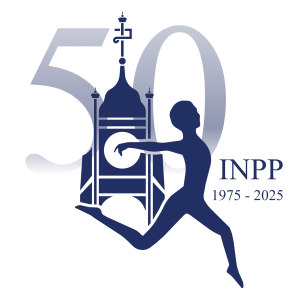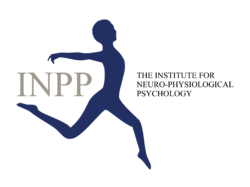
XXVII INTERNATIONAL INPP CONFERENCE IN NEURODEVELOPMENT
Chester UK . October 18th and 19th 2025

INPP would like licentiates to play an active role in the conference. The conference committee is inviting INPP licentiates to submit proposals for short (20 min.) presentations about any ongoing or published research related to their INPP practice.
Each proposal should contain a title for the presentation, abstract in English (if published) and a brief description of the content to be presented. Please submit to the conference committee: conference2025@inpp.cloud
Speakers

Sally Goddard Blythe
Sally Goddard Blythe MSc, is International Director of the Institute for Neuro-physiological Psychology and author of eight books on the relationship between physical development, learning and emotional regulation.
Over thirty-seven years of private practise she has specialised in the assessment and supervision of aspects of children’s physical development using the INPP method and developed standard professional training protocols in the INPP method which are now used in 14 countries throughout the world.
She developed The INPP Developmental Screening Test and School Intervention Programme with a view to making aspects of the method accessible to teachers and children in schools in any part of the world irrespective of financial status.
Her presentation will focus on the history of the development of the INPP method, evidence-based research and her vision for the method in the future.

Sônia Padovan Catenne
Sônia Padovan Catenne, MD, specialized in neuropsychology, child and adolescent psychiatry and psychotherapy. She is International Director of the Padovan Method for Neurofunctional Reorganization, and responsible for the training, supervision and certification of authorized Padovan therapists in Central and South America, Canada, Europe, Africa and India.
She has over 30 years of clinical experience utilizing the Padovan method to treat different CNS disorders and syndromes (CP, autism, Down Syndrome, dyslexia, TDAH, etc). The Padovan Method was originally developed in 1972 by Beatriz Padovan, Brazilian speech therapist and teacher who devoted her life to helping children in the maturation of the CNS through the recapitulation of the developmental motor stages and the oral functions.
She will share the theoretical basis of the Padovan method, as well as the clinical results obtained in the treatment of the various disorders.

Ewa Gieysztor
Ewa Gieysztor, PhD in Physiotherapy, is developing her research at Wroclaw Medical University, Poland. She combines her work as professor and therapist with the research at the university, being first author and co-author of various articles focused on the primitive reflexes.

Nazaret Castellanos
Nazaret Castellanos, Teoretical Physics, completed a PhD in Medicine (Neurocience) at the Universidad Autónoma de Madrid. She has a Master ́s degree in Computational Neuroscience from the Engineer Faculty in Madrid and another in Anatomy, Histology, and Neuroscience from the Medicine Faculty in Madrid.
She is the research director of the Nicamara Lab and holds the position of Extraordinary Chair of Mindfulness and Cognitive Sciences at the Complutense University of Madrid. She has published over 60 research articles.

Vicente A. Domingo Sanz
Vicente A. Domingo Sanz is a Social Educator and MSc in Experimental and Clinical Neuroscience from the University of Murcia, Spain. He works at the Montrull Advanced Optometry Center (Valencia) which specializes in the treatment of congenital, acquired or traumatic vision alterations in patients from infants to the elderly.
His field of research focuses on the relationship between the persistence of primitive reflexes and the different alterations of oculomotor skills such as eye tracking and saccadic movements. He also studies how retained primitive reflexes can affect fusional and accommodative abilities, and consequently stereopsis and depth perception.
Vicente will present his latest published research which highlights a significant link between Primitive Reflexes, fixation values and saccadic movements.







